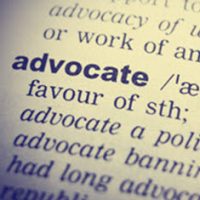Clearwater Assault and Battery Laws

Even though assault and battery are two distinct chargers, they are often intertwined. Both are criminal offenses that can have serious legal consequences, so whether you’re facing charges for assault, battery, or both, understanding the intricacies of state laws is essential to understanding your rights under Florida statutes.
When you are ready to learn more about your options after an arrest, connect with a Clearwater criminal defense lawyer. Attorneys have in-depth knowledge of assault and battery laws and are available to listen closely to your story in order to explore potential defenses.
Threats of Harm and Physical Attacks
There are differences between assault and battery. Assault is an intentional, unlawful threat or attempt to commit violence against another person, coupled with the apparent ability to do so. Note that physical contact is not necessary for an assault charge to be filed, the charge is possible with a mere threat of harm. On the other hand, battery involves the intentional and unlawful touching or striking of another person. Unlike assault, battery requires actual physical contact against a person’s will or causing bodily harm.
Both assault and battery are classified as misdemeanors or felonies, depending on the severity of the offense and other aggravating factors. Simple assault and battery are typically charged as misdemeanors, punishable by fines, probation, or time in a county jail. Aggravated assault and battery are elevated changes, these involve the use of a deadly weapon or result in serious bodily injury. As a result of the escalated severity, aggravated changes are considered felonies and carry much harsher penalties, including possible prison sentences.
If you’ve been accused, there are several potential defenses for assault or battery charges that your attorney may employ on your behalf. Self-defense is one common defense strategy, which asserts that you acted reasonably to protect yourself or others from imminent harm. In cases where the alleged victim consented to the physical contact, consent may also serve as a viable defense. Additionally, mistaken identity, lack of intent, and alibi defenses may be employed. Determining the best defense option will depend on the circumstances of your case.
Have an Attorney Review Evidence
Effective defense strategies often involve a thorough investigation and analysis of the evidence against you. Your attorney will review witness statements, surveillance footage, and any other relevant documentation to identify weaknesses in the prosecution’s case.
Your Clearwater criminal defense lawyer may also be able to negotiate with the prosecutor to explore alternatives to trial. Sometimes diversion programs or plea bargains that could result in reduced charges or penalties are in reach. Having a full comprehension of the nuances of Florida’s assault and battery laws, potential defenses, and the range of penalties associated with convictions is key to achieving the best possible outcome.
Has an assault arrest in the Clearwater area upended your life? Talk to the trusted legal team at King Law Group. Qualified professionals who are committed to providing you with expert legal representation have talents to safeguard your future. Schedule a consultation today.

